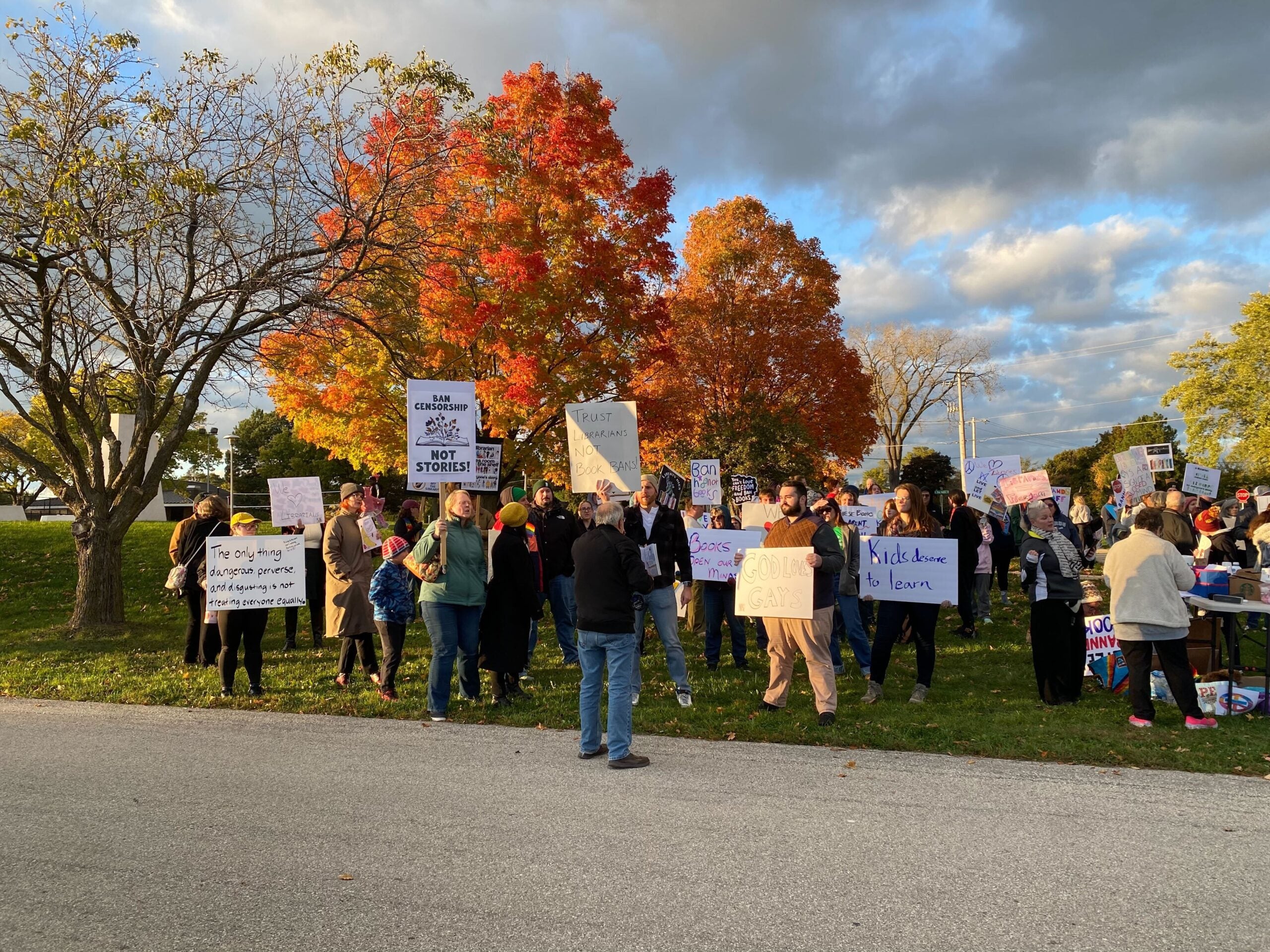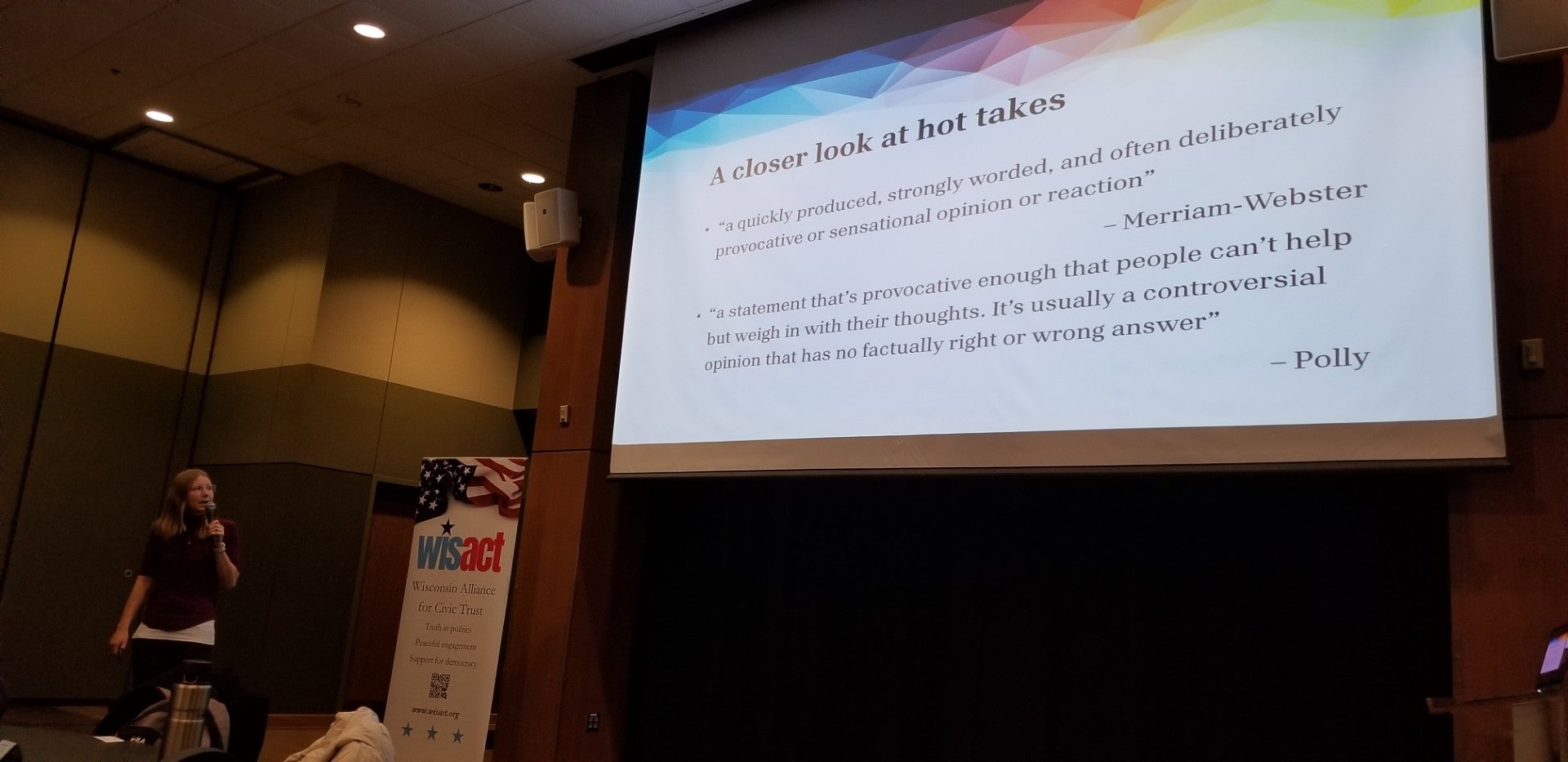Featured in this Show
-
Death Conference
Grief and loss are concepts typically associated with death, but they’re emotions that are equally applicable when people develop life-changing illnesses like dementia.
That was one of the themes that arose this week during the annual International Death, Grief and Bereavement Conference at the University of Wisconsin-La Crosse.
Erica Srinivasan, director of the university’s Center for Grief and Death, which hosts the conference, gave a presentation focusing on young-onset dementia and the experiences of people who develop it.
Much like one would expect to cope with grief surrounding a death, Srinivasan said those affected by these life changing events, whether it be a divorce or dealing with a long-term illness like dementia at a young age, need to recognize the need to grieve.
“They’re navigating their own losses throughout that illness process and anticipating their impending death and the caregiver too is coping with their own losses,” said Srinivasan “Both the person with dementia and their caregiver, they’re also grieving for each other and the losses they are experiencing.”
Young-onset dementia affects people who are younger than 65. The Alzheimer’s Association estimates that of the 5.7 million people in the United States living with dementia, 200,000 have young-onset dementia.
Srinivasan conducted focus groups with young-onset dementia patients in the La Crosse area and was struck by how the stigma associated with the illness affected them.
“They talked about how they’d get responses from people saying, ‘Well, you look so healthy’ or, ‘But you’re young, that’s an older person’s disease, you couldn’t possibly have this,’” she said. “That really sort of minimized their feelings and made them less willing to express their grief. That really has an impact on grief with that stigma or that lack of awareness about what the disease entails.”
Srinivasan said people also expressed difficulty telling people they work with about their diagnoses, having to plan for early retirement and struggling with relationships with their spouse and children.
Her study also found, “coping resources among people with young-onset dementia are marginal, at best, or completely lacking.”
More information about the annual conference is available online.
-
Death Doula
The La Crosse area has its first community-based palliative care service focused on helping families with end-of-life decisions.
Dr. Jackie Yaeger, a family physician who has been focused on palliative care in recent years, is now making home visits to help patients and their families with dying at home.
“People have discovered that sometimes they need someone who’s skilled and experienced to guide them through the dying process,” she said. “A death doula, while its not completely well-defined at this point, because it’s still new, to me, it’s someone who assists people with the process of dying like a birth doula assists someone with the process of giving birth.”
The concept is only five to seven years old according to Yeager who got some specialized training in Colorado.
“People are very hungry to talk about death,” said Yaeger. “They’re becoming much more open and it’s happening very quickly.”
She said she finds home visits the best way to assess the needs of someone who is dying.
Episode Credits
- Hope Kirwan Host
- John Davis Producer
- Dr. Erica Srinivasan Guest
- Dr. Laurel Hilliker Guest
- Laurel Burnett Guest
- Dr. Jackie Yaeger Guest
Wisconsin Public Radio, © Copyright 2025, Board of Regents of the University of Wisconsin System and Wisconsin Educational Communications Board.




